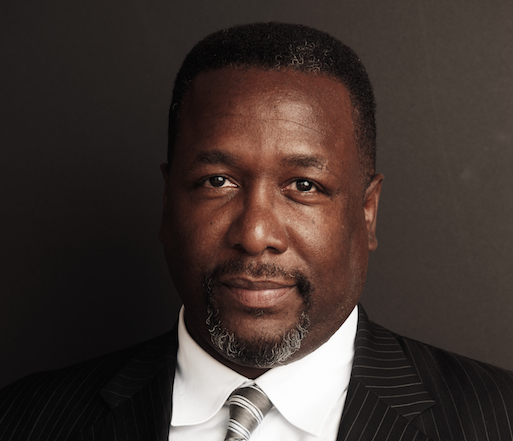Interview with Wendell Pierce, Part Two: Treme, New Orleans, and Chef Culture
Maggie Borden
Maggie BordenOctober 07, 2014

The 2014 JBF Food Conference, taking place October 27–28 in New York City, will explore the intersection of food and health. Our speakers and panelists will discuss the myriad ways in which food supports personal and public health; fails to deliver on the promise of better health; and both drives and responds to other cultural forces in America today.
In anticipation of this two-day event, we're holding Health Month here on the JBF blog. In the post below, we continue our extended interview series with actor and activist Wendell Pierce, discussing the relationship between art and reality for the citizens of New Orleans in the wake of Hurricane Katrina.
For part one of our interview, click here.
--
JBF: What was it like to work on Treme, a show that mirrored the humanitarian work you were doing at the same time?
WP: Treme was art imitating life and life imitating art. I was depicting what was happening in New Orleans as people were trying to rebuild their lives, while I was also doing that in real life. Art is the forum where community reflects on itself, and Treme was an incredible demonstration of the tangible role of art in society. People on Sunday night would gather for watch parties in New Orleans and reflect on what they’re going through. While they’re trudging through the hardship of rebuilding, there was a moment where we collectively as a community could look back and see our progress and the obstacles and challenges in our way: corruption, police brutality, ineptness, apathy, the yin and yang of New Orleans. And now that it’s over, we have this cultural document that people years from now can look and see that we did it one étouffée at a time, with reconstituting our music and our culture.
JBF: Treme certainly celebrated the amazing food culture in New Orleans. How did that tie into the show’s storyline?
WP: I think one of the most unique things Treme did was point out that the culinary arts is, well, an art form. It is an expression of human accomplishment and endeavor. It literally is the sustenance of life—you know, food! Nothing had ever given attention, respect, and a forum to the culinary arts like Treme did. All these things that tie back to great memories, love of family, what’s important to us, the uniqueness of our culture. Treme illustrated how the city’s food is a reflection of our demographics—literally a gumbo, the most overused cliché depiction of New Orleans, but it’s so true. It’s such an American idea.
Check back during Health Month for the final installment of our in-depth interview with Wendell Pierce.
--
Maggie Borden is assistant editor at the James Beard Foundation. Find her on Twitter and Instagram.




-57 web.jpg)


